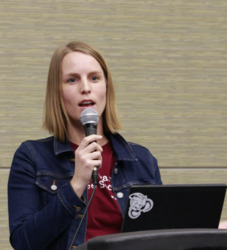How to 'Sell' Software Freedom to People
HAVING finished all the weekend tasks and spent more time with family, yesterday I could resume writing about Free software for the first time since Saturday. Explaining to people (including family) what Free software is depends a lot on the concepts and words used. Use technical terms with a non-technical person? That might not work. Use words like "free" with a person accustomed to think of cost? That might not work, either.
Earlier this year, examples of free software elevator pitches were assembled in an FSF wiki (we covered this at the time). The page is unfinished but should be considered work in progress.
"Elevator pitches for students and teachers" currently include only one. This one: "We can only learn in freedom if the software we use is free. Free software protects the learner's freedom and let's them study the source code and learn how the software works. By choosing to use free software, schools and universities gain independence from any commercial interests and it avoids vendor lock-in. Free software licenses grant users the rights not only to use the software as they wish, to copy it and distribute it, but also to modify it in order to meet their own needs. Therefore, if institutions eventually wish to implement a particular function in a piece of software, they can engage the services of any developer to accomplish the task, independently from the original vendor."
The "pitches for people working in government" and "pitches for scientists" are currently empty (placeholders). Having done both (postdoc and many clients in government), and having witnessed Free software in both, I often found myself in a position of having to explain why we must not move to Windows or Slack or even JIRA (which I once installed at home as an experiment and would not consider/deem free/libre anymore).
In my experience, it helps when one speaks about control, not freedom, including confidentiality. "Would you trust this company with all our data?"
In the case of governments or government grants (for science), "is this good use of taxpayers' money?" (My Ph.D. and postdoc years were funded by EU grants).
The above wiki page is maintained by Dr. Miriam Bastian, who "completed her PhD in ancient history at the University of Zurich and worked as a freelance journalist and teacher."
If you have a moment to spare, consider extending the wiki with more pitches. █



